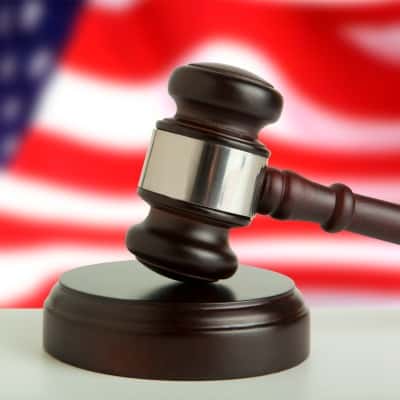 Federal lawmakers' revamped effort to provide fair tax treatment of liquefied natural gas (LNG) has advanced in the U.S. Senate, and a similar measure was proposed in the House of Representatives.
Federal lawmakers' revamped effort to provide fair tax treatment of liquefied natural gas (LNG) has advanced in the U.S. Senate, and a similar measure was proposed in the House of Representatives.
Last week, the Senate Finance Committee approved a bill recently reintroduced by U.S. Sens. Richard Burr, R-N.C., and Michael Bennet, D-Colo. The bill, S.344, aims to put LNG on equal footing with diesel fuel under the federal highway excise tax.
The current excise tax rate for both fuels is set at 24.3 cents per gallon, but LNG produces less energy per gallon than diesel fuel; therefore, LNG is taxed at a rate 70% higher than diesel.
The senators say their bill, which now goes to the full Senate for consideration, would fix that inequity by taxing LNG on an energy-content, rather than a volume, basis.
‘We have an opportunity to help grow this market and increase the use of natural gas as a transportation fuel,’ says Bennet. ‘We've watched our domestic energy markets undergo a drastic change over the last decade, and this bill will help harness that momentum. It will also encourage more consumers and business owners to use LNG-powered vehicles that can help keep our air cleaner.
“We'll continue to work with our colleagues to get this passed by the full Senate,” he adds.
NGVAmerica says it is encouraged by the committee's vote. In a statement, NGVAmerica President Matthew Godlewski comments, ‘The advancement of bipartisan Bennet-Burr proposal by the Senate Finance Committee is a positive step resolving an important barrier to the expanded use of natural gas as a transportation fuel.’
In the other chamber of Congress last week, two lawmakers reintroduced their bill to change the excise tax rules on LNG.
Reps. John B. Larson, D-Conn., and Mac Thornberry, R-Texas, originally proposed their legislation in 2009 and have reintroduced it in each subsequent session of Congress. They say the Burr-Bennet bill in the Senate is based on their House measure.
Dubbed the “LNG Excise Tax Equalization Act of 2015,” H.R.905 also would change the current law to tax LNG based on its energy output.
“Utilizing natural gas is critical to our energy independence, but current federal tax policy discourages investment in vehicles that run on this American fuel source,” says Larson. “This commonsense, bipartisan legislation levels the playing field for LNG trucks, further empowering companies to harness the benefits of clean, affordable and domestic natural gas.”
“I think this change will encourage more private-sector investment in LNG infrastructure and production, and that will have a real, positive effect on our economy,” says Thornberry.
Larson and Thornberry note the bill has received public support from NGVAmerica, the American Gas Association, America's Natural Gas Alliance, AGL Resources, Clean Energy Fuels, UPS, and others.
‘The introduction of this bill demonstrates continued support in the Congress for natural gas as a transportation fuel,’ says NGVAmerica's Godlewski. “Rep. Thornberry and Larson recognize the important role that clean-burning, domestic natural gas can play in improving our air and supporting American jobs at home.”






